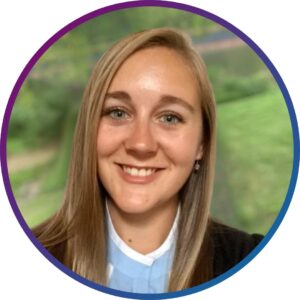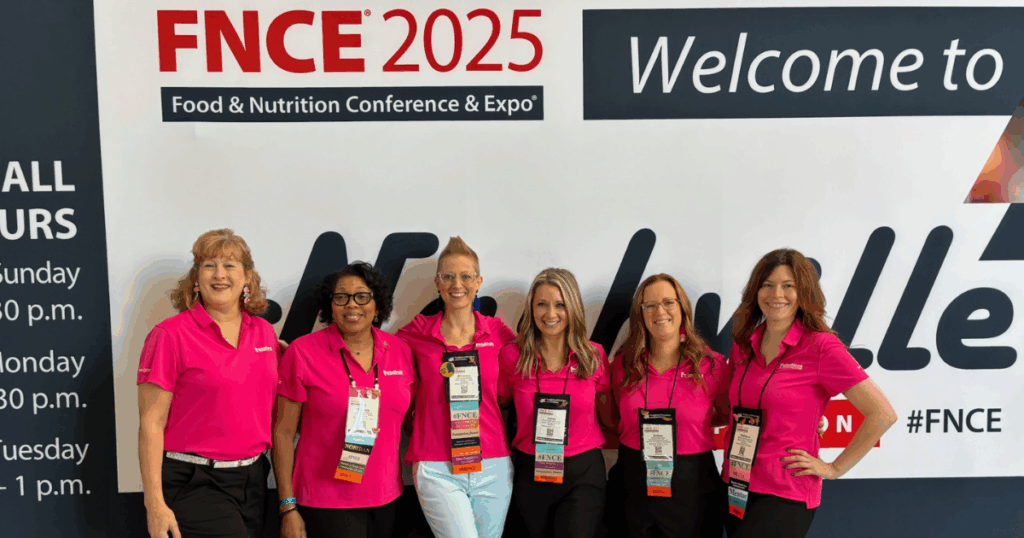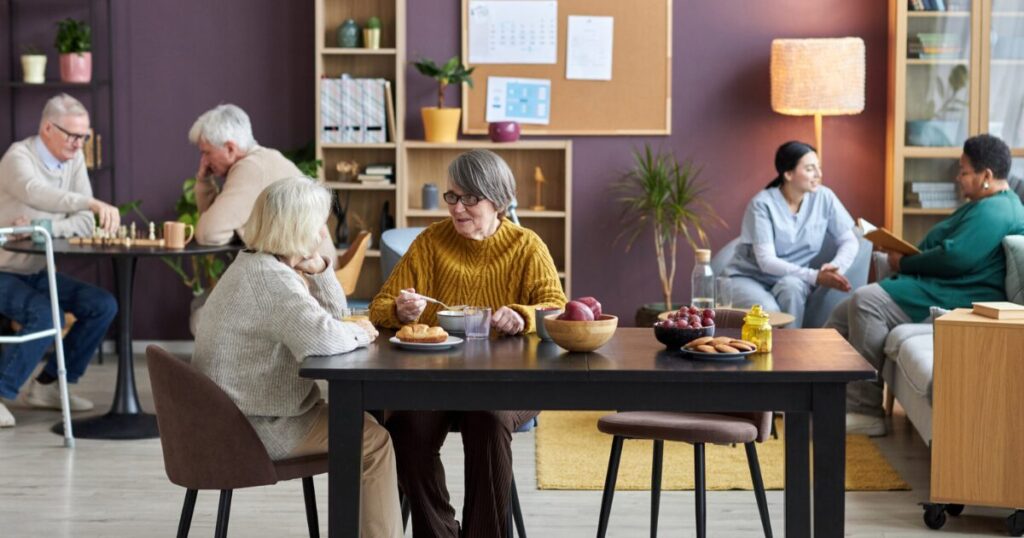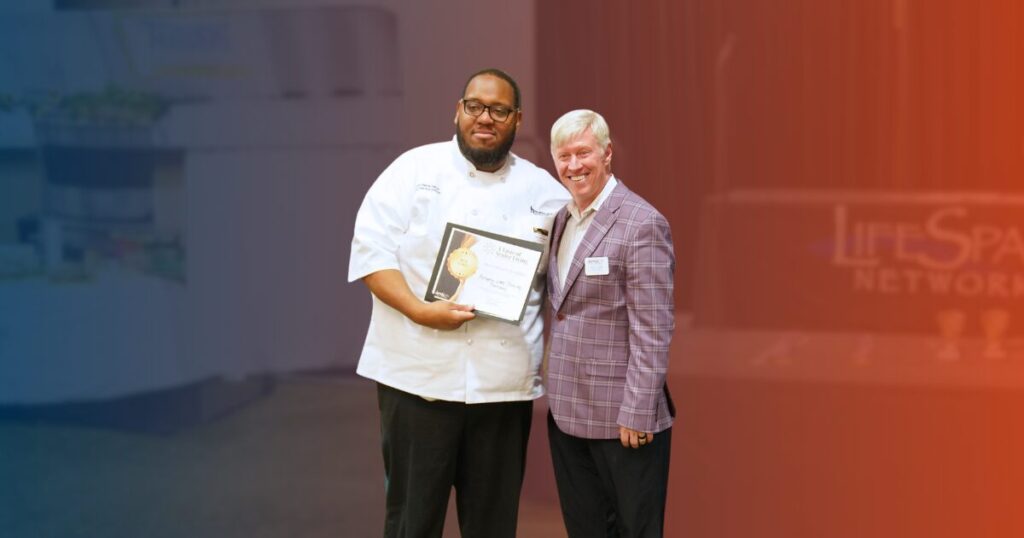Mentorship Matters: How HCSG Shapes the Future of Clinical Nutrition
Mentorship is one of the most powerful tools in developing future leaders. For dietetic students, it bridges the gap between classroom theory and clinical practice, offering real-world experience, expert guidance, and the confidence needed to grow into a skilled, compassionate Registered Dietitian (RD).
At Healthcare Services Group (HCSG), mentorship is a commitment to clinical excellence and long-term impact. When an experienced RD takes a student under their wing, they help shape the future of nutritional care in meaningful, lasting ways.
Becoming a Registered Dietitian: The Journey from Student to Clinician
To become an RD, students must complete a rigorous set of requirements:
- Undergraduate coursework from an accredited dietetics program
- Supervised practice hours in clinical, foodservice, and community settings
- A graduate degree
- Passing the Commission on Dietetic Registration (CDR) exam
These steps ensure that future dietitians are prepared to make evidence-based decisions, work within interdisciplinary teams, and advocate for patient-centered care. That’s why clinical rotations, especially in long-term care, are so critical. They offer hands-on learning opportunities that help students connect academic knowledge with resident outcomes.
Inside the Internship: Real-World Training at HCSG
HCSG Lead RD Allison Round recently mentored Celesthe Rodriguez, a University of Minnesota’s (UMN) dietetic student intern during a three-month clinical rotation in the Twin Cities. HCSG partnered with UMN to continue learning opportunities for dietitians who are looking for a hands-on experience. UMN’s Internship Program Director, Amy Pleimling shared, “This enriching experience opens the door to a variety of nutrition services and intervention experiences that enhance student learning.”
Celesthe completed 70 supervised hours, rotating through multiple long-term care facilities, learning how to navigate both clinical tasks and compliance standards such as nutrition assessments, kitchen audits, resident visits, and charting. “My responsibilities helped me better understand how dietitians use both clinical reasoning and regulatory knowledge to advocate for residents and ensure nutritional care is both effective and compliant,” said Celesthe. She began shadowing Allison and gradually stepped into the role herself, gaining confidence and independence with each interaction.

Building Clinical Confidence Through Mentorship
Allison approached the internship with clear goals: provide real-life training, share best practices, and encourage interdisciplinary collaboration. She explained, “I wanted to create a positive experience for Celesthe with the tools I have learned within my time at HCSG, especially the importance of connecting with the interdisciplinary team.”
Celesthe gained a better understanding of working collaboratively with the interdisciplinary team. She observed the Speech-Language Pathologist conduct swallowing screenings and learned how they work with dietitians to determine appropriate diet textures. “These everyday conversations strengthened my communication skills with the interdisciplinary team, which positively impacted residents’ health.” she shared.

Nutrition is Personal: Connecting with Residents
Beyond the clinical requirements, Celesthe found deep meaning in her interactions with residents. She took the time to get to know them and discuss food preferences, which helped her tailor interventions to meet nutritional needs and personal taste. She said, “Moments with residents reminded me that food is more than just nutrition. It’s a source of joy, comfort, and identity.”
Inspired by her time in long-term care, Celesthe presented a ‘Food Connects Us’ presentation during National Nutrition Month, followed by a bingo activity that encouraged residents to share memories tied to specific foods.
Proud of her ideas and willingness to step out of her comfort zone, Allison expressed, “I have hopes that Celesthe will consider joining the long-term care sector, and possibly take a position with HCSG. We want to continue to build a network of confident and compassionate dietitians. Celesthe would be a great asset to our team.”
Beyond career growth, HCSG prioritizes well-being with valuable benefits, including free telemedicine, military relocation assistance, and a strong network of peers and leaders invested in your success. When you join HCSG, you’re not just taking a job—you’re building a career with a company committed to supporting you every step of the way.
Looking Ahead: A Bright Future in Dietetics
Celesthe’s next steps include passing the Registered Examination for Dietitians, to begin her career as an RD. Reflecting on her time with HCSG, she shared, “My experience with HCSG gave me a clearer picture of how daily nutrition care decisions can positively support residents’ well-being and recovery.”
Her journey represents the kind of real-world, purpose-driven learning that can only happen through strong guidance in a supportive clinical environment. The partnership between HCSG and academic programs like the University of Minnesota is vital to making that happen.
“The UMN Coordinated Program is thrilled about our partnership with HCSG and looks forward to many more clinical internship opportunities in the future,” said Amy Pleimling, Program Director of the Coordinated Program at the University of Minnesota (UMN).
Grow the Next Generation of Clinical Leaders
Partner with HCSG to give your dietetic students the opportunity to grow through a hands-on clinical internship experience. Through expert mentorship, real-world learning, and key collaboration, HCSG helps shape the future of nutritional care, one intern at a time. Together, we’re not only training future dietitians, but we’re investing in the next generation of leaders in nutritional care. Email recruitrds@hcsgcorp.com to learn more.
Related Articles —







